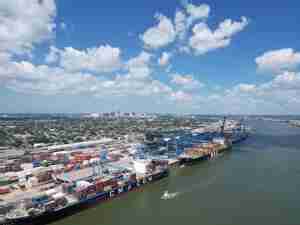Brazil port workers start six-hour strike; adherence limited
By: Reuters | Jan 24 2014 at 06:43 AM | Ports & Terminals
Workers at 10 Brazilian ports started a six-hour strike on Friday against what they said was increasing privatization, but the country’s main shipping port of Santos did not participate.
The National Port Federation (FNP), which organized the strike, does not include stevedores, but rather workers in charge of granting permission for docking and undocking of vessels as well as controlling dock access.
“Ten ports have adhered to the strike so far, but more could join,” said Adriana de Araújo, a spokeswoman for the FNP in Brasilia.
Participating ports included Rio de Janeiro, Salvador and Belem, she said. Workers at Paranagua, the country’s No. 2 grain-exporting port, were operating on a limited scale known locally as “operação-padrão,” or work-to-rule.
The Sintraport union at Santos, in Sao Paulo state, said workers had decided not to participate.
The FNP has also planned a 24-hour strike for Thursday and will hold a general assembly on Feb. 4 to discuss an open-ended strike.
Brazilian port workers have long been wary of President Dilma Rousseff’s efforts to attract private investment to the country’s public port terminals, a move the government believes is necessary to improve export efficiency.
The striking workers on Friday were particularly targeting a government plan to allow the ports to contract third-party security at the ports.









